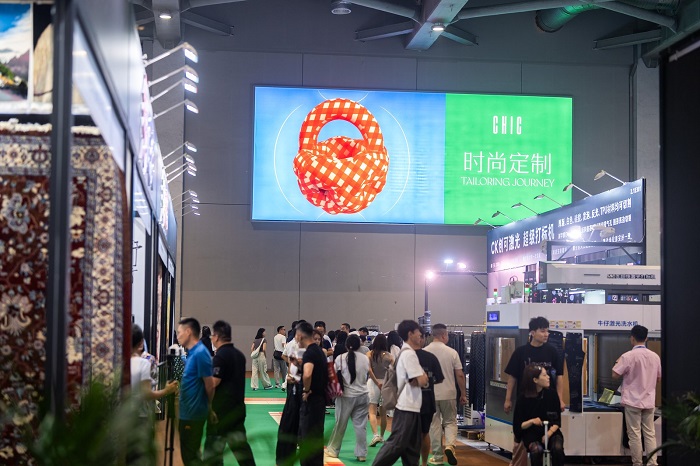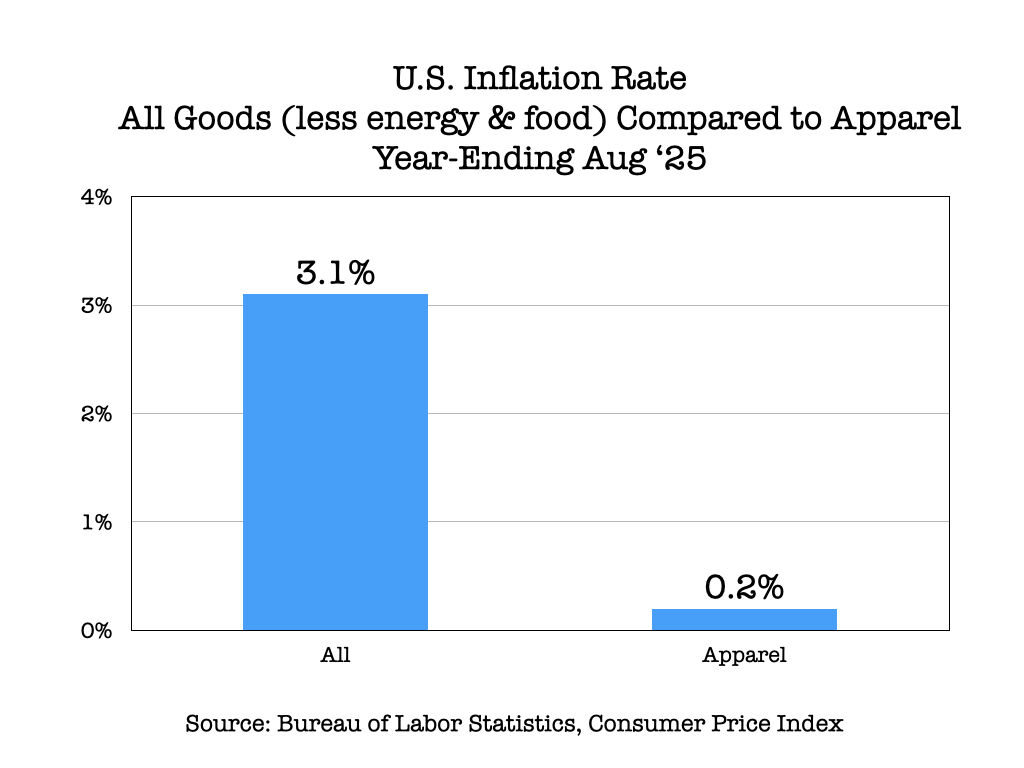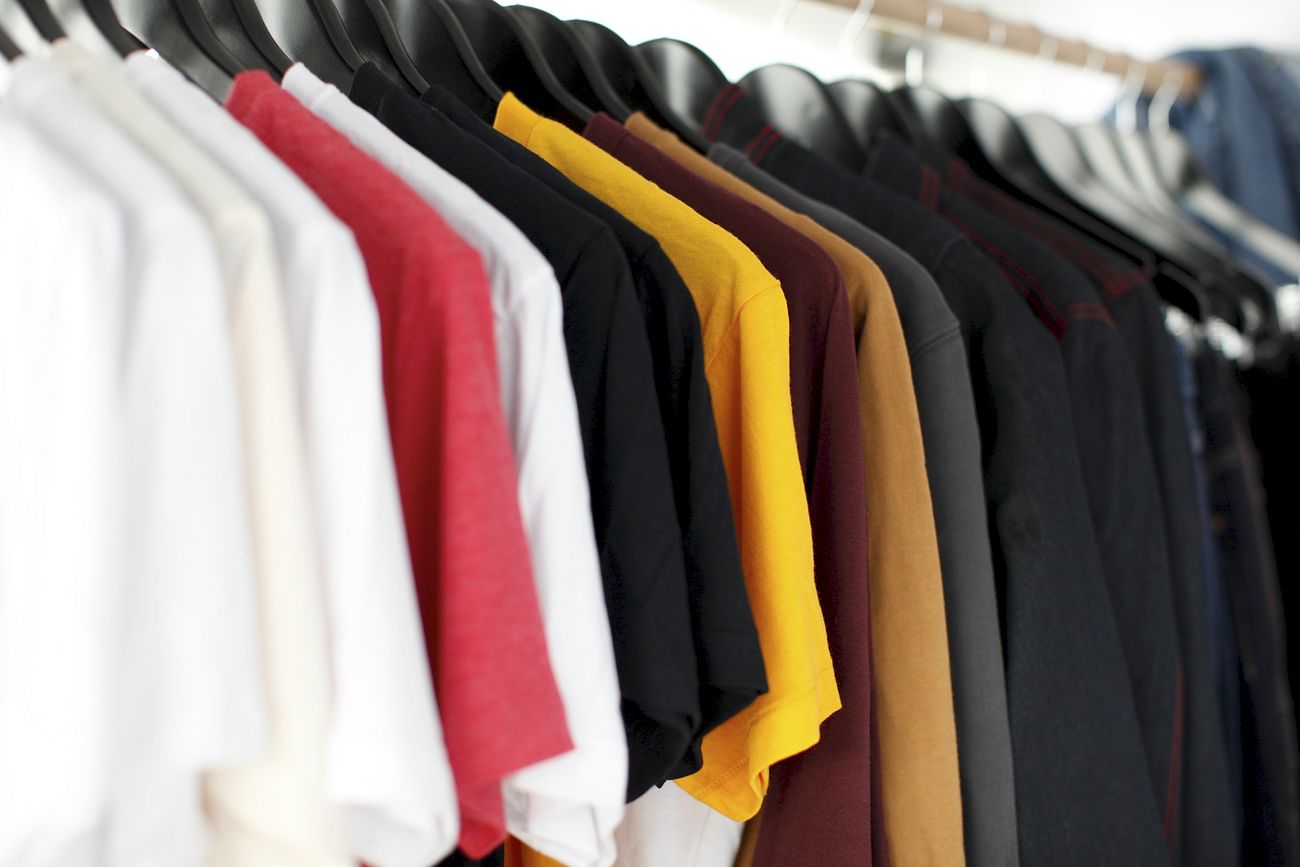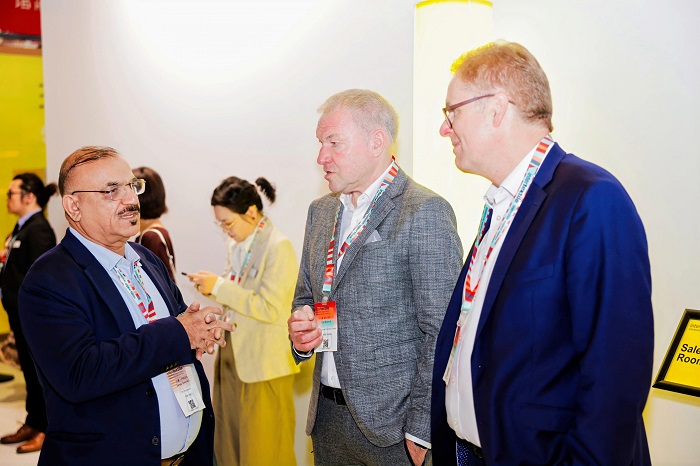FW
Pakistan Readymade Garments Manufacturers and Exporters Association (PRGMEA) has demanded quick implementation of the revised PM package for exporters for 2017-18 as well as strategic marketing plans to speed up exports by leveraging the advantages of GSP Plus.
PRGMEAs Senior Vice Chairman Sheikh Luqman Amin asked the finance ministry to quickly release funds as over 30 per cent cash flow was blocked in sales tax refunds and Customs rebate which is affecting cash liquidity.
The Finance Ministry has not yet released the major part of the previous Rs180 billion PMs package post January 2017 Sheikh Luqman noted and said that the government should implement measures to remove all issues that are stifling textile exports.
Another area of concern is that textile value-added products cannot sell at a high value due to bad packaging. Sheikh was of the view that there is a felt need to set up a product and packaging centre to enhance packaging.
Sheikh disclosed that the association is looking at implementing a long-term strategy to nullify stiff competition in international markets from major players such as India and China.
PRGMEA chief was of the view that formulation of sector-wise policies is a way forward to stabilise exports. He said that following non availability of latest fabric domestically, the garment industry currently has a limited product line that can be manufactured for the export market as foreign buyers are demanding new garments on G3, G4 and technical fabric raw material.
Sheikh decried the fact that instead of involving associations, exporters have been told to directly submit their claims to banks which unfortunately do not have any competent technical staff to evaluate such claims. This is resulting in banks not following SBP directives of processing refund cases within 14 days.
This, he concludes, only goes to show that the Finance Ministry is not keen on implementing the PMs package despite the fact that the country is facing an all-time high trade deficit.
Celebrities from the worlds of music, film and reality television have the kind of media reach and marketing might that most fashion designers can only imagine. It’s no wonder that the recent boom in fashion lines bearing celebrity names have customers, retailers and investors transfixed. Owning a fashion or make-up brand is in vogue these days. Many celebs, including Rihanna, Kylie Jenner, Anushka Sharma, Lara Dutta, Kriti Sanon and Sonam Kapoor among others, have their own fashion brands.
However, the relevance of the product also plays an important role. Many young stars are coming up with their brands. Now, if their brands have fashionable stuff that reflects today’s styles and trends, and if they are reasonably priced, but if either of these things is missing, then a celebrity name can sustain them only for so long. The inspiration behind these launches, are international celebrities like singers Justin Timberlake and Jessica Simpson who own and operate large global portfolios of branded products. Additionally, online marketplaces like Amazon, Myntra and Flipkart have helped the brands to penetrate smaller towns and cities.
However, not everyone is convinced about celebrity-backed brands business. International celebs launch limited edition collections but a whole line of celebrity-owned products has seen limited success globally also. Fans respect the celebrities for their fields.
From biodegradable glitter to fabrics made from seaweed or orange fibers – these are the next generation innovators that will be supported by the Fashion for Good-Plug and Play Accelerator. Around 15 selected start-ups will follow a robust curriculum over the next 12 weeks, including mentorship from the Accelerator’s partners: adidas, C&A, Galeries Lafayette, Kering, Target and Zalando, with the aim to transform the fashion industry for good.
The Fashion for Good-Plug and Play Accelerator initiative works to find and accelerate innovative technologies and business models that have the greatest potential to reshape the industry. The Fashion for Good hub is in Amsterdam.
The 15 start-ups have been carefully selected out of hundreds of applicants and come from all over the world covering four continents and ten nationalities. They represent varied supply chain areas from alternative raw materials to new business models. For the next 12 weeks, the Accelerator’s partners and mentors will drive market validation of the innovators’ technologies, to prime them for implementation at scale. In addition, the start-ups are screened for potential funding to support development of their businesses.
Graduation of the start-ups will take place on June 14 at the Fashion for Good hub in Amsterdam, where they will showcase their innovations to an audience of industry leaders and investors.
Pakistan hopes to sign the second phase of the Free Trade Agreement (FTA) with China in April. Under the first phase of FTA, Pakistan’s trade balance with China worsened, and it registered the $12 billion mark in the last financial year 2016-17.
In February 2018, China had agreed to revise the FTA and provide tariff concessions for increasing Pakistan’s exports. Pakistan had suggested incorporating clauses for safeguarding its industries and the economy from any undue pressure on the balance of payments position. Pakistan exporters wanted tariff concessions equivalent to Asean countries. China also agreed on electronic data exchange, which would help reduce the chances of under-invoicing, another major concern of Pakistan’s industry.
Pakistan’s major exports to China are: cotton yarn, chemical material, crude vegetable material, rice, raw hides and skins, fish and fish preparations. Major imports are machinery and spare parts, manufactured fertilizer, yarn and thread of synthetic fiber, iron and steel, chemical materials and products, vegetable and synthetic textile fiber, road vehicles and their parts, non-ferrous metals, tires and tubes of rubber etc.
Meanwhile China is helping Pakistan's spinning mills become more cost efficient and competitive. China also wants to relocate its textile units to Pakistan to benefit from Pakistan’s low paid and well-experienced textile labor.
Authentic Brands is buying Nautica from VF Corp. VF Corp has a varied portfolio of lifestyle brands such as Vans, The North Face, Timberland, Wrangler and Lee. The sale is s part of VF’s global business strategy.
Founded in 1983, nautical-inspired American brand Nautica is a mid- to high-end apparel label available in more than 65 countries. Nautica is a leading water-inspired global lifestyle brand including men’s, women’s and children’s apparel and accessories and a complete home collection. Nautica products are classics that are rich in performance, color and authentic style.
The transaction is expected to close in the first half of 2018 but is subject to standard closing conditions and regulatory approvals. Authentic Brands manages more than 30 global consumer brands and operates through over 2,300 locations worldwide. Its portfolio includes: Juicy Couture, Herve Leger and Airwalk. Authentic is a brand development, marketing, and entertainment company, which owns a global portfolio of lifestyle, celebrity and entertainment brands. Headquartered in New York City, the group manages, elevates, and builds the long-term value of consumer brands by partnering with best-in-class manufacturers, wholesalers, and retailers. Its global retail footprint spans the luxury, specialty, department stores, shop-in-shops, e-commerce, mid-tier, and mass channels.
Lenzing Group is repositioning its brand Tencel. This is a key milestone of Lenzing’s new brand strategy to enhance product offerings, foster connection with customers and consumers, and drive consumer demand. Under the new brand strategy, Tencel Modal and Tencel Lyocell fibers will be key ingredients in the Tencel branded product portfolio. Derived from certified wood sources, both Tencel Modal and Tencel Lyocell standard fibers are produced via responsible production processes and are compostable and biodegradable under industrial, home, soil and marine conditions.
Textiles produced under the Tencel brand are also enabled by the company’s innovations, including Refibra technology, Eco Soft technology, Eco filament technology and Micro technology, to meet evolving consumer demand. While Lenzing Modal is known as a fiber with good quality and long-lasting softness, Tencel is a well-recognised brand among stakeholders, customers and consumers in key target regions of Lenzing. Hence, Tencel is adopted as Lenzing’s textile specialty brand for apparel and home applications and is aimed to help create a unique and differentiating brand in the Modal and Lyocell fiber markets.
As Lenzing's flagship brand in the textile sector, Tencel will grow beyond fiber types and functional characteristics. It will become a true consumer-focused brand with a promise of something more functional and emotional.
Pakistan’s textile value-added products are unable to fetch a high value due to poor packaging. The industry says a product and packaging centre will ensure better packaging. Since fabrics are in limited supply, the garment sector in Pakistan has a restricted product line for the export market. Foreign buyers demand garments made of technical fabrics, which are not available or produced by Pakistani weavers.
The industry says it can’t compete in the global market without support or a proper plan. Exporters say formulation of sector-wise policies can control the decline and stabilise exports. Refunds are another problem. Sales tax refunds and customs rebates are pending. Exporters complain of cash liquidity and say this is the main cause for the continuous drop in exports and the reason the export industry is unable to tap its potential in accordance with capacity.
Garment manufacturers and exporters have called for an aggressive marketing plan to enhance exports and get the maximum benefit of GSP Plus status. Pakistan’s textile industry has witnessed dwindling investments over the last decade. Currently, around 35 per cent of the textile industry’s production capacity is impaired.
Prospective investors are reluctant to make new investment decisions due to the high cost of doing business. As a result, the industry has lost its technological advantage over its competitors.
India and Hong Kong have entered into a double taxation avoidance agreement. This is aimed at stimulating the flow of investment, technology and personnel from India to Hong Kong and vice versa, preventing double taxation and providing for exchange of information. It will improve transparency in tax matters and help curb tax evasion and tax avoidance.
Investors will get an advantage of a lower withholding tax of 10 per cent on interest or royalties provided they fulfill the main purpose test, which broadly checks that the transaction is not entered into specifically to avoid taxes. It also provides for capital gains taxation of indirect transfers. It provides that gains from sale of shares of a company deriving more than 50 per cent of its value from property situated in a country will be taxed in that country. There are exemptions for airline and shipping companies.
Hong Kong is an important financial and trading partner and the absence of a treaty was a hindrance. Now things are expected to move forward. The agreement is expected to give protection against double taxation to over 1,500 Indian companies and businesses that have a presence in Hong Kong as well as to Hong Kong-based companies providing services in India.
Gap is undertaking water conservation with a new sustainable manufacturing goal to save 10 billion liters of water by the end of 2020. The goal would yield water savings equal to the amount of daily drinking water needed for 5 billion people. The company stated efficiency improvements and product innovation would be critical to achieving the potential water savings.
Gap’s new manufacturing goal is part of its water stewardship strategy that focuses on reducing environmental impact at the raw materials and product design level, in addition to helping communities touched by the company’s efforts to improve clean water accessibility and sanitation processes. Over the past few years, Gap Inc. has also elevated water efficiency improvements at the mill, laundry and product level.
Gap is actively monitoring wastewater quality at denim laundries through its Water Quality Program, an initiative launched in 2004 that ensures denim laundries’ wastewater is properly treated. To improve its denim products, the Gap brand established a denim wash program dubbed Washwell, which reduces water use by 20 percent or more. Since launching the program in 2016, the Gap brand has saved more than 100 million liters of water.
The company is also working with other leading authorities to support more environmentally responsible manufacturing processes. The company’s Women and Water program is working to help communities boost clean water accessibility and sanitation. In 2014, the company integrated its water, sanitation and hygiene curriculum into its P.A.C.E. program that educates female garment workers about safe water-handling practices.
Since 2014, Gap projects have worked to conserve more than 2.4 billion liters of water and progress toward the new goal is under way due to improvements in clean water access, product design and material sourcing.
From futuristic denim technology brands like e-indigo, chrome chord, hybrid chinos to handloom ones like ikat — denim is witnessing a revolution in terms of design aesthetics and accessibility to cater to the evolving mentality of customers.
A wash trend collection has been developed at Arvind Denim Lab using eco-friendly technologies and processes. E-indigo, an innovative line, uses a new indigo dyeing technology, which is not only substantially more sustainable compared with traditional dyeing techniques, it also imparts a fresh appeal to the finished product.
Levi Strauss has devised a new operating model that ushers denim finishing into the digital era. Project FLX (future-led execution) digitizes denim finish design and enables a responsive and sustainable supply chain at an unparalleled scale. By replacing manual techniques and automating the jeans finishing process, Project FLX radically reduces time to market — and eliminates thousands of chemical formulations from jeans finishing.
Using this method Levi Strauss can replace manual techniques and automate the time-consuming, labor-intensive and chemical-reliant process of hand-finishing. By using lasers in new ways, finishing time is cut dramatically – from two to three pairs per hour to 90 seconds per garment, followed by a final wash cycle. Levi Strauss has begun piloting Project FLX with select vendors and retail partners and will roll it out across its supply chain in a phased approach over the next two years.












